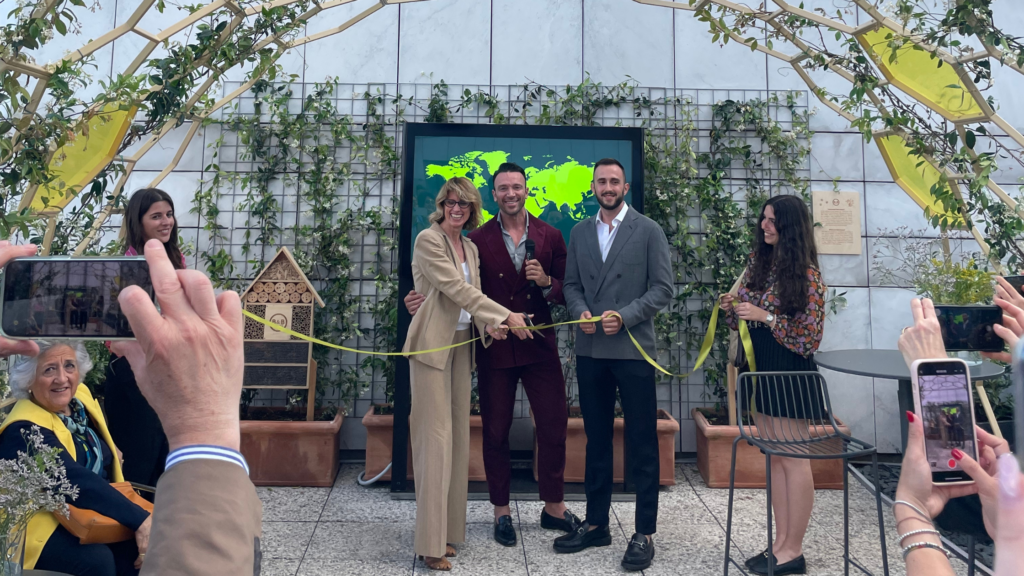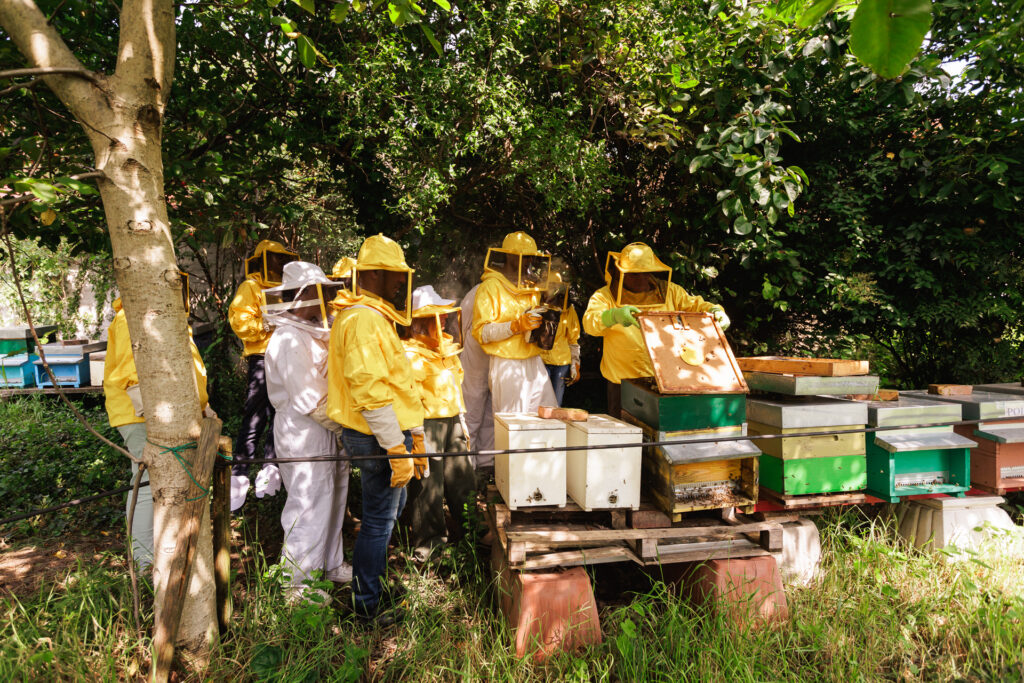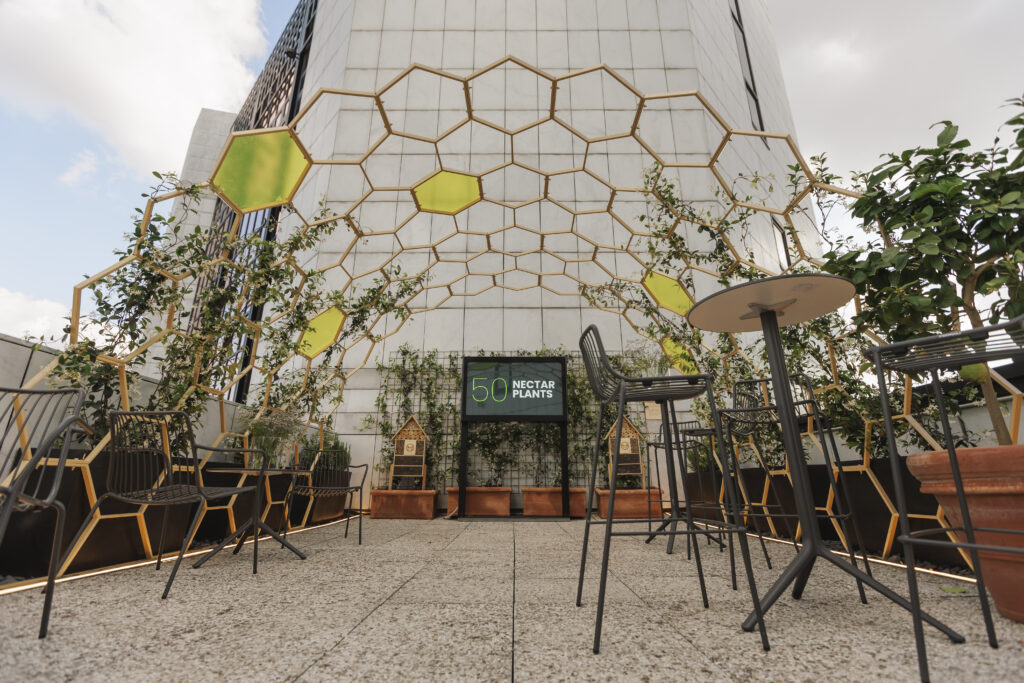We recently had the pleasure of interviewing Francesco Romeo of B&B Hotels Italy: a hotel chain founded in France in 1990 and which today counts around 800 hotels in 15 countries.
With Francesco, we recently developed a project aimed at safeguarding biodiversity within the urban context, offering bees and other pollinators a small oasis where they can nest and find shelter.
Who are you and what role do you play in the company? What does B&B Hotels do?
My name is Francesco Romeo and I am the CSR manager at B&B Hotels for Italy, Slovenia and Hungary, i.e. the south-eastern European region. B&B Hotels is a hotel chain born in France and currently present throughout Europe, Brazil and the United States. In Italy we currently have more than 70 hotels throughout the country. As a company, we are trying to progressively integrate sustainability criteria into our business strategy and my role is to take forward sustainability initiatives.
What are your values, especially in the field of environmental, social, and economic sustainability? What positive impact do you want to achieve in your sector, on the territory, and on the community around you?
As a Group, we have a global sustainability manifesto based on three pillars: the first relates to the empowerment of people, starting with the employees and ending with the communities; the second relates to environmental protection, hence the issues we have addressed with this project such as biodiversity, climate change and circularity; the third is more related to innovation, a topic we care a lot about, i.e. continuously innovating the activities we carry out in our hotelsand the service we offer to customers in an increasingly responsible manner.
What actions can a company like B&B Hotels take to achieve its sustainability goals?
I see actions divided into two broad categories. The first, which we are already dealing with because it is more immediate and more consistent with my role, includes day-to-day activities, to answer questions such as: what kind of service do we give the customer? How do we encourage our customer to make more responsible choices, ranging from water consumption in our hotels, to recycling, to saving energy? So we need to provide the customer with the means and knowledge to reduce our impact on the environment, both as a society and as a stakeholder.The other part, which I think is very important and which we are starting to address more and more, is what comes before. So, when we build or convert a hotel, what criteria do we adopt at the level of construction, redevelopment, design and then at the level of maintenance so that this new structure can have as little impact on the environment as possible? Without forgetting the social impacts that revolve around a hotel, first and foremost local employment, the impact on the local community, tourism, then also the positive economic impact it can have within an urban fabric of a locality or community.
How did the partnership with Beeing come about? How did the idea of using bees as part of your biodiversity protection project come about?
On the occasion of World Environment Week, we as a Group decided to promote environment-related initiatives, focusing on the topic of biodiversity. This is a topic that often remains excluded from the main environmental issues faced by societies, there is a lot of talk about climate change, circularity and this is right, but sometimes we forget about biodiversity. We therefore decided to focus on this area. As far as the topic of bees is concerned, it is a topic that the company has always liked a lot and also within the industry it is a topic of great interest. That is why we got to know Beeing and together we tried to build activities that would raise awareness of the importance of bees for the protection of biodiversity and ecosystems, but which would also be integrated into our business. We didn’t want to simply organise a volunteer or training day, so we tried to integrate the project into our activities by converting the terrace of one of our hotels to make it more comfortable for our guests, while keeping our sustainability goals in mind.
Did the project manage to involve employees? Did it stimulate employees to act for environmental protection?
Yes, we had a very high participation rate and received a lot of enthusiastic feedback! We did well together with Beeing and the Nocetum association to put together a team building, volunteering and environmental awareness activity.
What were the most significant challenges you faced during the development and implementation of this project? How did you overcome them?
The original idea was to bring urban beehives onto the hotel terrace, but then for safety reasons this was not possible. Hence we took the opportunity to revise the project together and decided to convert the terrace into a small oasis of biodiversity, and so we thought of installing Bee Hotels for wild bees, which we then hooked up with training projects. We did not allow ourselves to be discouraged, but managed to turn difficulties into an opportunity.
What sustainability results have you achieved so far?
Certainly the most concrete result is that we now have a green space, which did not exist before, in one of our hotels; therefore, our customers and the people who gravitate around our hotel can also enjoy this green space. In my opinion this is an important result because it combines our business activity with a CSR initiative.
What are your future plans to further expand or improve the project?
We certainly want to expand the B&Bees project, again not with stand-alone projects, but where there are open spaces such as terraces or gardens that should be re-evaluated, we would like to do so using this format, perhaps customising it according to space and local needs.
What is the key message you would like to convey to other companies or organizations wishing to undertake similar environmental sustainability initiatives? What are the key steps you would advise them to follow to be successful?
The advice I would give is to combine employee engagement with team building, volunteering and also awareness-raising initiatives. Never do things separately because if you put these three elements together you will definitely have a bigger and more business-related impact.
The project developed by B&B Hotels Italy with Beeing demonstrates how it is possible to transform sustainability from an abstract concept into a concrete daily practice. This initiative not only improves the local environment but actively involves employees and customers, demonstrating that sustainability can be effectively integrated into the business model.
Francesco and B&B Hotels Italy address the challenges related to sustainability in a unified way. This approach can represent an important example for other companies: combining employee engagement with environmental sustainability and social responsibility activities is not only possible but can generate a significant, positive, and lasting impact.


